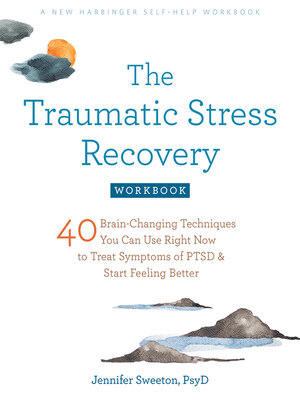The Traumatic Stress Recovery Workbook
ebook ∣ 40 Brain-Changing Techniques You Can Use Right Now to Treat Symptoms of PTSD and Start Feeling Better
By Jennifer Sweeton

Sign up to save your library
With an OverDrive account, you can save your favorite libraries for at-a-glance information about availability. Find out more about OverDrive accounts.
Find this title in Libby, the library reading app by OverDrive.



Search for a digital library with this title
Title found at these libraries:
| Library Name | Distance |
|---|---|
| Loading... |
40 simple, brain-changing neuroscience techniques for overcoming trauma.
I can't ever calm down. I am emotionally numb. I can't stop thinking about what happened. I don't want to go anywhere. I can't sleep.
If you've experienced trauma, you may feel emotionally numb. You may have moments where you can't "calm down," or get to sleep. You might replay the traumatic event over in your mind. And you may even isolate yourself from others. You should know that you are not alone. Many people will live through a potentially traumatic event at some point in their lives, and some will even develop symptoms of post-traumatic stress disorder (PTSD). If you're struggling with symptoms, you need effective relief—right now. This workbook can help you find it.
In The Traumatic Stress Recovery Workbook, trauma and neuroscience expert Jennifer Sweeton provides forty brain-changing techniques for overcoming PTSD that you can begin using right away to build resilience, boost self-confidence, and develop self-efficacy. You'll learn what happens in your brain after experiencing trauma, and why it reacts in ways that cause even more distress. You'll also discover evidence-based strategies grounded in cutting-edge neuroscience to manage psychological and physical—or somatic—symptoms—so you can get back to your life.
Using the practical and integrative approach in this workbook, you can address symptoms at your own pace. And by making small lifestyle changes, you'll carve new neural pathways in your brain and jump-start the healing process.







